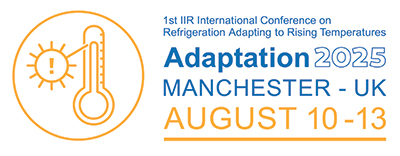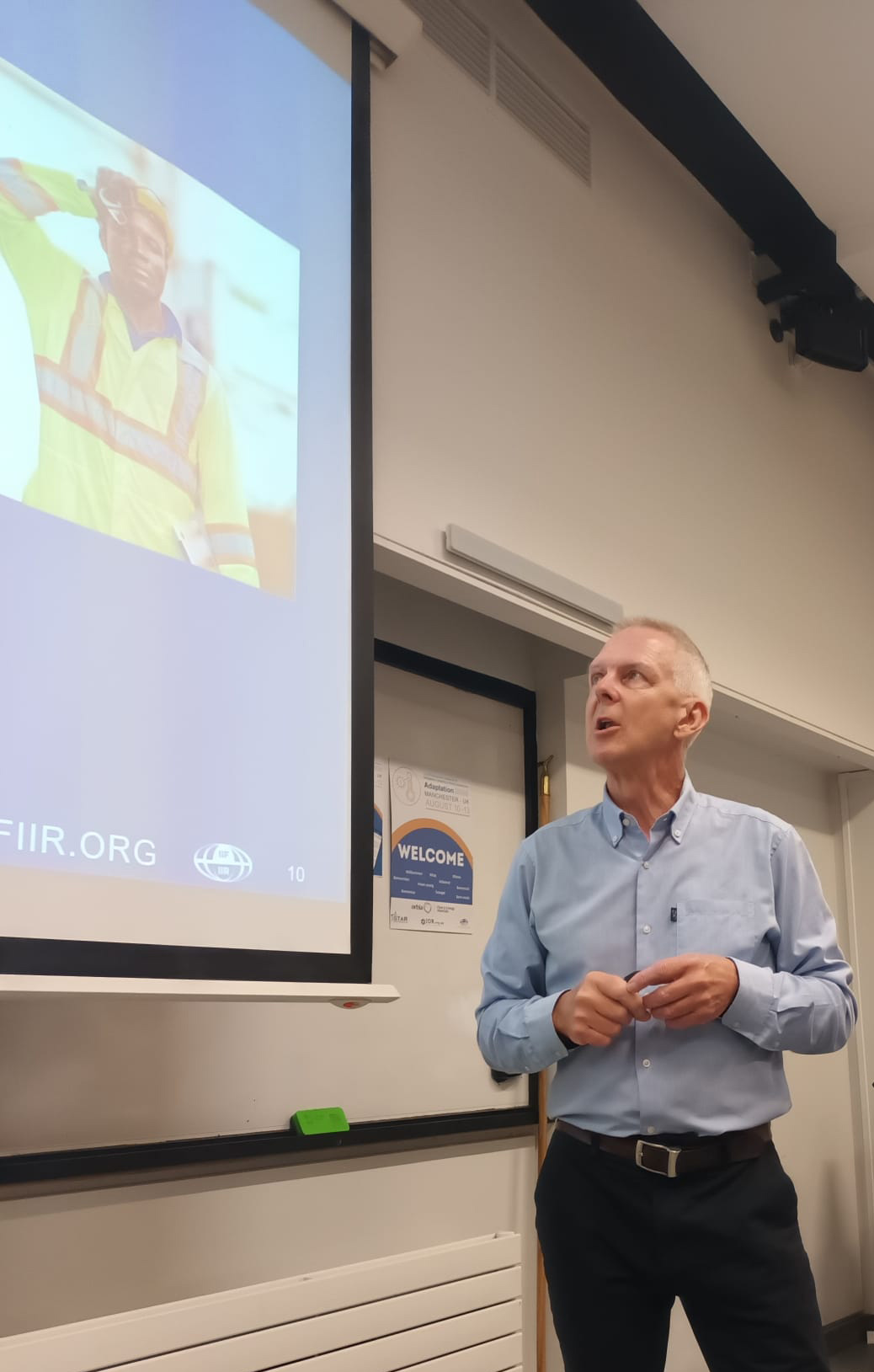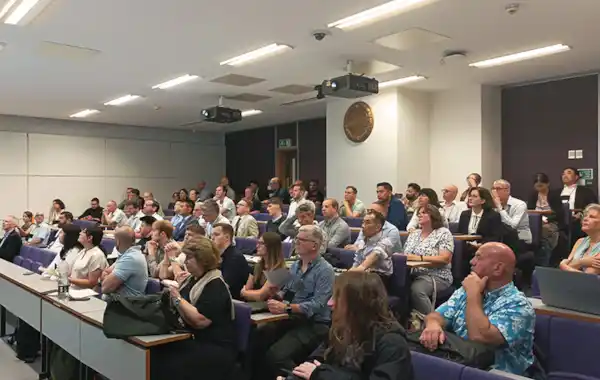14 August 2025
|

Andrew Slater reports from the first IIR Conference on Refrigeration Adapting to Rising Temperatures, where global experts explored innovation, resilience, and the race to stay cool.
Close to 120 researchers, engineers, consultants, manufacturers and policymakers from 18 countries attended the first IIR International Conference on Refrigeration Adapting to Rising Temperatures at the University of Manchester. Hosted by the Institute of Refrigeration (IOR), the event brought together industry figures focused on refrigeration technology, heat pumps, air conditioning, food storage, transport and energy efficiency. It created a multidisciplinary platform for sharing research, developing solutions and agreeing strategies for a hotter and more demanding world.
The conference opened with a keynote delivered by Dr Tim Fox of the Clean Cooling Network, working with the University of Birmingham. Drawing on his paper The Hot Reality: Living in a +50°C World, Fox argued for cooling to be recognised as critical national infrastructure. He underlined its essential role across sectors from food supply and healthcare to data centres, industry and digital infrastructure, stressing that sustainable, resilient cooling is fundamental to health, economic stability and national security.

Dr Tim Fox of the Clean Cooling Network
Fox highlighted the risks posed by rising global temperatures, with projections of over 3°C of warming by the end of the century, and explored how inadequate cooling could lead to food losses, compromised vaccine distribution, reduced productivity, and public health crises. He called for coordinated government action, cross sector collaboration, and policy reform to embed cooling into adaptation planning — not as a luxury, but as a vital service without which modern society cannot function.
Technical depth and diversity
Delegates had access to more than 80 technical papers addressing refrigerant safety, system efficiency, renewable integration, and the resilience of cold chains and building services.
Examples included research into the climate and safety trade offs of different working fluids, development of high temperature industrial heat pumps for decarbonising district heating, and the use of phase change materials for advanced thermal storage. Other work examined the need to update UK refrigeration design specifications to reflect higher peak temperatures, alongside sector specific adaptation strategies in retail, healthcare and food distribution.
The breadth of topics showed both the complexity of the adaptation challenge and the innovative thinking already underway, with practical solutions emerging for applications from supermarkets to industrial processing.
Workshops and collaboration
Workshops brought together participants from sectors including retail refrigeration, transport, data centres and building services. Discussions focused on improving energy efficiency, reducing lifecycle emissions and balancing near term adaptation with long term sustainability. Technical tours gave delegates the chance to see UK projects combining innovation with practical application, including integrated heat pump networks and advanced cold storage facilities.
Shared challenges across the sector
The conference underlined that rising ambient temperatures are already affecting system performance, reliability and operating costs. Solutions presented emphasised the need for smarter, cleaner and more adaptable approaches rather than simply increasing capacity.
While different sectors face distinct challenges, such as cold chain protection in food retail compared to urban cooling in building services, the principles of resilience, efficiency and low carbon operation applied across the board.
The takeaway
Adaptation 2025 was a strategic gathering for an industry on the front line of climate change impacts. It brought together science, engineering, policy and business to share knowledge and explore practical steps forward.
A consistent message from Manchester was that adaptation is necessary. Whether through refrigerant transition, improved control strategies, thermal storage or updated design parameters, the RACHP community has the tools and the responsibility to meet the challenge of a warming climate.
For those who want to be part of the conversation and help shape the future of cooling, joining the Institute of Refrigeration offers a direct link to the latest research, events and industry networks.
https://ior.org.uk/
Adaptation 2025
- Dates: 10-13 August 2025
- Venue: University of Manchester, UK
- Total attendees: just under 120
- Countries represented: 18
- Technical papers presented: more than 80
- Programme highlights: papers, workshops, short courses, technical tours
- Focus areas: refrigeration technology, heat pumps, air conditioning, food storage, transport, energy efficiency

IOR President Lisa-Jayne Cook with Overall Student Prize winner Thanut Nuangjamnong
Student research recognised
Also at Adaptation 2025, IOR President Lisa-Jayne Cook presented certificates and prizes in recognition of three outstanding research papers from students.
Modelling Water Condensation on Fruit Bulks Exposed to Temperature Fluctuations won the Overall Student Prize. Written by Thanut Nuangjamnong of the Université Paris-Saclay, INRAE, it focused on developing a model of heat and mass transfer in bulk fruits, including condensation. This model has the potential to forecast air and product temperature evolution and accumulation of water condensation, thus helping to prevent condensation which is unfavourable for product quality.
The student awards, sponsored by J & E Hall, also recognised the two following papers:
- Experimental Evaluation Of R472B As R23 Alternative For Ultra-Low Temperature Refrigeration, written by Pau Giménez-Prades of Universitat Jaume I
- Application of CO2 Refrigeration Systems on Small Fishing Vessels: Experimental Laboratory & Simulation Results, written by Alex Reimer of the Norwegian University of Science and Technology
More at www.adaptation2025.com








